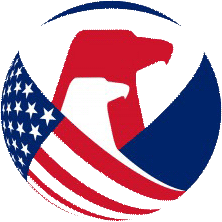The headline is almost correct, but as with all things, the devil is in the details.
From the CPSC order – which I’m very grateful the article has linked to – Amazon is a distributor as defined in the Consumer Protection Safety Act for products they market as part of the Fulfilled by Amazon program. Since they’re not the manufacturer, Amazon is not subject to product liability, but they do have a responsibility to not sell products that don’t comply with published, mandatory safety standards. They also have an obligation to recapture hazardous products that were sold and to provide refunds. Amazon has not been doing all of this.
In short, Amazon’s defense was that they’re a “third party logistics provider” under the Act, meaning they just warehouse and ship the products, which doesn’t come with the aforementioned obligations for a “distributor”. The administrative law judge and CPSC rejected this, because Fulfilled by Amazon is more than just warehousing. They noted that Amazon also substantially handles payment processing, customer service, returns, and packaging/gift packaging. They also noted that the terms between Amazon and its sellers heavily discussed things which are the customary province of distributors, with Amazon assuming a lot of those roles.
So what can we expect? Possibly an appeal through the courts. But the order has decent odds of standing, as it’s premised on fairly clear definitions in the law, plus the findings of an administrative law judge and the CPSC’s own findings, which all agree. And the order really just requires Amazon to draft a plan to implement its obligations; it doesn’t force a change quite yet.
Assuming Amazon decides to cut their losses and comply, only Fulfilled by Amazon products will be affected. Anything sold and shipped by the seller themselves could still be listed on Amazon, with the seller carrying the obligations under the Act.
I’d be fine with that: They sell so many sketchy things it’s crazy. All their Amazon Basics brand stuff are rip-offs of other existing products too.
I also agree that this is a helpful development, since lots of people with Amazon Prime subscriptions will naturally gravitate towards products that they can receive within 2 days or sometimes even overnight. And that’s really only possible with either Amazon directly selling something (eg Amazon Basics), or with Fulfilled by Amazon sellers, which this order covers.
I just wanted to provide the context for the brief headline, so people don’t just assume that all of Amazon’s listings would soon become safety-compliant. They won’t.
Unsafe product “sludge” will continue to be a problem even outside Amazon, as platforms like eBay and recently Temu continue to flog some fairly dangerous goods. But addressing that requires a holistic educational approach, such as why unrecognizable e-scooter brands with no UL labels are a problem, among other concerns.
Basically, it’s slow progress but good progress.
Yeah, I try to avoid Amazon but every once in a while when I need something I can’t get locally I give in.
we distribute goods on behalf of manufacturers but that doesn’t make us a distributor
Complete and utter nonsense. I’m glad Amazon took an L here. Can they still appeal in some way, though?
Good.
Maybe they’ll vet the shit up there instead of pushing whatever schlock a drop shipper comes up with next
Finally, holy shit!



